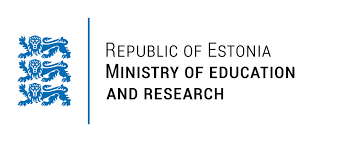European Research Excellence – Impact and Value for Society#
Estonian Presidency Research Policy Conference#
12 October 2017Tallinn, Estonia
Conference website #
#
Pre-registration (open until 7 September 2017) #
#
Background: The aim of the Conference is to demonstrate to policymakers that excellent research is essential to addressing Europe’s challenges and for increasing competitiveness. The Conference is timely, as research is under considerable pressure across Europe. Public expectations for science to solve societal challenges are increasing. At the same time, we observe a decline in political commitment towards funding. Whilst there are expectations on realising the immediate economic benefits of research, it is also vital that we demonstrate the indirect economic and social benefits of public investment. Truly transformative effects lie in new and unpredictable scientific and technological discoveries, which lay the foundations for new industries, markets and broader social renewal. The Conference will demonstrate the value of research, build a case for investing in research and innovation, and aim to strengthen political commitment for ambitious long-term public investment in European R&I. It encourages a perspective that goes beyond a short timescale and focuses instead on a long-term vision.
The Conference brings together internationally-outstanding scientists and policymakers from many EU countries, as well as a range of stakeholders from academia, business, and civil society. It will encourage an open debate on how excellent research generates societal and economic added-value and how we nurture the framework post-2020. By sharing knowledge, best practice and experience, the Conference will generate positive and strong messages that speak to the wider audience beyond the auditorium. The Conference aims to influence the debate on European research policy in the lead-up to the next Framework Programme. The outcome of the EU Presidency Conference will be presented in a final declaration, the Tallinn Call for Action.
Moderator for the Conference is Brian Cox, University of Manchester
PROGRAMME#
9.00-9.30 Registration
9.30-10.00 Welcome and opening addresses
- Mailis Reps, Estonian Minister of Education and Research
- Carlos Moedas, Commissioner for Research, Science and Innovation (video message)
10.00-10:30 Keynote speech: Mark Ferguson, member of the High-Level Group on maximising the impact of EU Research and Innovation Programmes
10.30 Coffee break
PLENARY SESSION I#
Expecting the unexpected: frontier research brings the future closer
The aim of the session is to make the case for why Europe needs investment in bottom-up,
interdisciplinary and visionary research. Frontier research is still often perceived in terms of
“pure science” or “science for science’s sake”. Despite the high-potential gain, it can involve
significant costs and the risk of failure. Today’s R&D systems are not conducive to frontier
research. There is increasing pressure for scientists to show that their research is generating
impact and success. New arguments are needed to convince the public and decision-makers
that investing in frontier research pays off over time, even if the outcome is unpredictable. The
narrowing of objectives, opportunities and strategies, as well as an obsession with measuring
impact in science, reflects an erosion of trust. This has the risk of reducing the effectiveness
of scientific discovery, for example, the choice of research topics is becoming more
conservative. In a rapidly-changing world, we must be more flexible and risk-taking, otherwise
we will not be able to respond to the next unexpected challenge we meet. This calls on the
R&D system to generate new knowledge that we perhaps cannot imagine. By being open and
curious, frontier research can bring about truly disruptive innovation, built on radically new
ideas. In the light of upcoming debates on the next EU multi-annual financial framework and
programmes, it is crucial that bottom-up high-risk activity is included.
11.00-11.15 Showcase: Valeria Nicolosi, Professor of Nanomaterials and Advanced Microscopy, Trinity College Dublin
11.15-12.15 Panel discussion
Panellists:
- Birgitte Nauntofte, Director, Novo Nordisk Foundation
- Pim Tuyls, CEO, Intrinsic ID
12.15 Lunch
PLENARY SESSION II#
From impact to value of research: providing the rationale for investing in research
Research and innovation lie at the heart of most developed countries’ economic strategies
and make a critical contribution to society and culture. Nonetheless, there is a constant
challenge to research in the competition for public investment. Recent studies provide
evidence that investment in research and innovation has very high returns but this has not
convinced sceptical politicians and the public that research is a sound investment. The second
plenary brings together key people to discuss the value of research, provide sound arguments
for investment in research and innovation, address current issues in approaches to
assessment and how to integrate the long-term impact of research investment in economic
models.
13.30-14.45 Panel discussion
Panellists:
- Jean-Pierre Bourguignon, President, European Research Council (ERC)
- Ola Erstad, Chair of the Science Europe Scientific Advisory Committee (SAC)
- Luc Soete, Rector Magnificus, Maastricht University, Chair of the HLG RISE
- Günter Stock, Chair of the Board of SAPEA (Science Advice for Policy by European Academies), President, All-European Academies (ALLEA)
- Vladimir Šucha, Director-General, Joint Research Centre (JRC)
14.45 Coffee break
15.15 PLENARY SESSION III#
Form and function: design of European research and innovation policies for global competitivenessIn the light of preparations for the next EU Framework and other programmes, the Conference will promote discussion on how to design a research and innovation system that can exploit untapped research potential, advance a science-based society and develop a more competitive Europe post-2020. Europe has set a vision of open science and innovation as the new modus operandi for science. How can we ensure that research and innovation policies designed today will meet the needs of the next generation of researchers, as well as citizens and policymakers? How can we make Europe an attractive place to do science and innovation, with talent from around the world? What is the role of the framework programme in advancing research and innovation in other EU policies? How can we fund the best research in emerging, fast-growing areas and help strengthen European competitiveness in relation to technological innovation? In the context of the interim evaluation of Horizon 2020, the session will take stock of lessons learned and address the necessary framework conditions for the next programming period. It will contribute ideas and proposals for the next Framework Programme, including synergy with Structural Funds and national strategies.
15.15-15.25 Showcase: Nicole Grobert, Professor of Nanomaterials, University of Oxford
15.25-15.35 Presentation: Dominique Guellec, Head of the Science and Technology Policy Division of the Directorate for Science, Technology and Innovation, OECD
15.35-16.30 Panel discussion
Panellists:
- Gemma Galdon Clavell, Founder and Director, Eticas Research & Consulting
- Ciara Judge, Co-Founder and Co-Director, Germinaid Innovations, grand prize-winner at the Google Science Fair 2014
- Martin Kern, Interim Director, European Institute of Innovation and Technology (EIT)
- Siim Sikkut, Deputy Secretary General for Communications and State Information Systems, Estonian Ministry of Economic Affairs and Communications
PLENARY SESSION IV Tallinn Call for Action: next steps in promoting European research excellence In the final session, the Conference declaration, the Tallinn Call for Action, will be handed over to stakeholders. It includes the main messages of the Conference, emphasising the role of excellent research in the context of a changing research environment and a changing Europe. The concluding panel discussions will involve representatives from civil society, policymakers, business, science and innovation, and regional and local authorities - all stakeholders targeted by the Call for Action. The session focuses on steps to implement the messages of the Call for Action.
16.30-16.45 Handing over of the Tallinn Call for Action
16.45-17.30 Concluding panel discussion#
Panellists:- Janusz Bujnicki, Member of the High Level Group of Scientific Advisors of the EC Scientific Advice Mechanism
- Axel Heinrich, Head of Research at the Volkswagen Group (VW AG)
- Marina Huzvarova, Vice-President of the European Union of Science Journalists' Associations (EUSJA)
- Robert-Jan Smits, Director-General for Research and Innovation, European Commission
- Sven Stafström, Director-General, Swedish Research Council
The conference has received funding from the European Union’s Horizon 2020 research and innovation programme under grant agreement No 766835
Conference team#
Questions and additional information:Kristin Kraav
Estonian Research Council
kristin.kraav@etag.ee
+372 501 3482
Download the programme
 .
.





